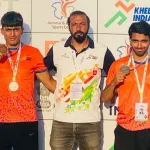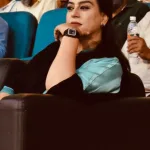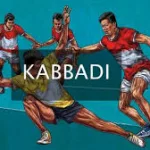India’s G20 Presidency has proven itself to be unique in different ways. It has focused on the priorities and key concerns of developing nations, amplified the voice of the Global South and raised ambition in areas like climate action and finance, energy transitions, SDG implementation and technological transformation. What has further added to making India an extraordinary G20 Presidency is the extensive participation of people or ‘Jan Bhagidari’ from across the nation in various G20 related events and activities. The Presidency has not been limited to the highest echelons of the Government. Through active participation from people across different states and UTs, India’s G20 has truly been a People’s G20.
With approximately 220 meetings spanning 60 cities, nearly 30,000 delegates in G20 meetings, over 100,000 participants in their side events as well as involvement of citizens from all corners of the nation, the G20 engaged with the people in myriad ways. Various line ministries diligently spurred active participation. The Ministry of Education orchestrated Jan Bhagidari events, witnessing enthusiastic involvement from diverse stakeholders including students, teachers, parents, and the community at large. Organized at levels ranging from state and district to block, panchayat, and school, these events cultivated awareness about the G20, the National Education Policy, and Foundational Learning and Numeracy – priorities central to India’s Presidency. These events collectively drew over 23.3 cr participants, encompassing 15.7 cr students, 25.5 lakh teachers, and 51.1 lakh community members.
Yet, the essence of Jan Bhagidari extends beyond participation numbers. An array of engaging activities – ranging from the enlightening G20 University Connect lecture series to interactive Model G20 meetings, Special G20 sessions in educational institutions, G20 Pavilions at prominent festivals, quiz contests, selfie competitions, and the captivating #G20India stories – played a pivotal role in nurturing widespread and enthusiastic engagement. The Working Groups displayed innovative means to enhance public involvement. Notably, the G20 Infrastructure Working Group initiated a G20 cyclothon and a motorbike rally on National Youth Day.
Moreover, India’s G20 Presidency has highlighted the nation’s distinct model of cooperative federalism. The States and Union Territories have competed with each other to welcome G20 delegates, generate local and regional enthusiasm, and showcase their respective traditions and achievements. In many cases, this has provided an occasion to carry out development initiatives that has contributed to such projection. Some examples are those of the restoration of Loktak Lake in Manipur, urban sanitation campaigns in Mumbai, or infrastructure enhancements in Lucknow. This synergy has not only showcased indigenous cultural legacies and artisanal skills on a global platform but has also increased employment opportunities for diverse communities. Many delegates saw for themselves the richness of ‘One District One Product’ (ODOP) initiatives and were themselves able to visit artisanal centres. Furthermore, it has effectively unveiled India’s captivating natural landscapes and architectural splendour, igniting a robust resurgence in post-COVID tourism. Indeed, the economic benefits of the manner in which the G20 programme has been implemented across the country are still unfolding. By celebrating the G20 across the nation, we have sought to create a pan-national experience that is to the benefit of both India and the world. It can be seriously asserted that overall, it has both made India world-ready and the world more India-ready.
The various Working Groups and Engagement Groups have also been a powerful platform to generate societal interest and commitment on global issues. In cases such as Science, they have contributed to a collaborative thinking about the key challenges we confront. Similarly, that on Labour provided opportunities for exchanges of experience to mutual benefit. The Youth 20 was particularly impactful and a strong validation of the Jan Bhagidari approach. More than 125,000 delegates in 1563 meetings were able to infuse an energy into the Presidency that was truly remarkable. Civil 20 alone touched 45 lakh people worldwide. Social media emerged as a pivotal tool in the G20 process, galvanizing citizens and igniting public engagement, resulting in over 14 trillion social media impressions.
Two world records were created in the course of public participation. One was the involvement of 1.25 lakh students from 800 schools in the G20 quiz in Varanasi. At the same time, 450 Lambani artisans showcased their skills and craftsmanship by creating an amazing collection of around 1,800 unique patches.
India’s Presidency has witnessed broad-based debates and discussions around themes that are crucial for our collective prospects. Prominent among them were those that involve a buy-in by the society, a goal viable only when the messaging seeps through the global community. A good example is that of LiFE (Lifestyle for Environment) which encourages eco-friendly changes in our daily habits. Similarly, the highlighting of digital delivery encourages us all to develop digital comfort in our regular transactions. The focus on women-led development, on its part, highlights the key role that they play in societal progress. Even the emphasis on attaining Sustainable Development Goals will accelerate when there is a larger awareness of its centrality to global prosperity.
Speaking in the ‘Mann ki Baat’ programme, Prime Minister Narendra Modi termed India’s G20 Presidency as a ‘people’s Presidency’. This was both a description and a motivation, highlighting how the harnessing of ideas and energies across our country has helped to create a truly memorable G20.
(The Author is Union External Affairs Minister, Government of India)





